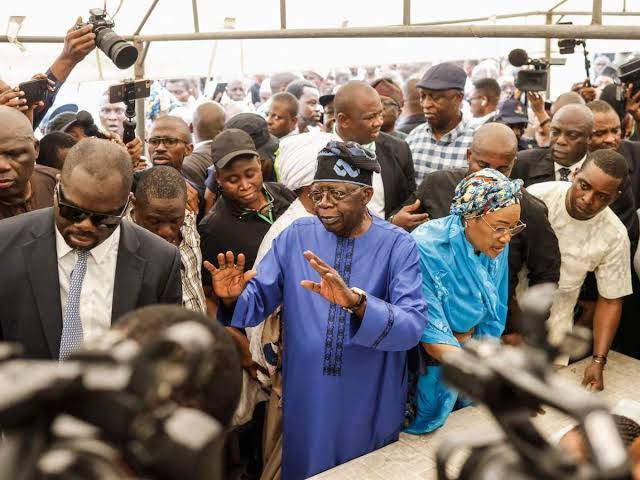Chaos In Abuja: Protesters Take Over National Assembly Against Tinubu’s Tax Plans
Thousands of protesters gathered outside Nigeria’s National Assembly on a tense day of political dissent, voicing their opposition to President Bola Ahmed Tinubu’s proposed tax reform bills. The demonstrators, drawn from diverse socioeconomic backgrounds, marched through Abuja’s bustling streets, decrying what they described as policies that would deepen the economic burden on ordinary Nigerians.
The protest, organized by a coalition of civil society groups, labor unions, and small business associations, highlighted widespread discontent over Tinubu’s fiscal policies, which are central to his administration’s economic agenda. Protesters carried placards with bold inscriptions such as "Enough of Tax Oppression" and "End the Suffering of Nigerians," chanting slogans as they pressed against barricades erected by security forces near the National Assembly Complex.
Tinubu’s tax reform bills, which aim to overhaul Nigeria’s revenue generation framework, have drawn significant criticism. While the government argues that these measures are necessary to diversify revenue streams and reduce reliance on oil, opponents view them as a threat to struggling households and businesses already grappling with rising inflation and unemployment. The reforms include proposals to introduce new taxes, broaden the existing tax base, and streamline collection processes, which critics say disproportionately target low- and middle-income earners.
The National Assembly session was underway as the protests unfolded. Inside, lawmakers deliberated on the controversial bills amidst palpable tension. Reports suggest that some members of the Assembly expressed reservations about the reforms, reflecting the divided public opinion on Tinubu’s economic strategy. Outside, the crowd’s demands grew louder, with calls for a rejection of the bills and a more inclusive approach to economic policy-making.
Protest leaders accused the government of prioritizing revenue collection over the welfare of citizens, describing the reforms as “punitive†and “tone-deaf†to the realities of daily life in Nigeria. A representative of one of the unions emphasized the hardship already faced by workers, pointing to rising costs of living and dwindling purchasing power as evidence of the need for caution in implementing further financial burdens.
Security presence at the National Assembly was heavy, with police and military personnel stationed to maintain order. While the demonstration remained largely peaceful, tensions occasionally flared, with brief skirmishes reported between protesters and law enforcement. Observers noted the restraint displayed by authorities, a departure from past incidents of protest crackdowns, possibly reflecting the sensitive nature of the issues at hand.
The protest underscores the challenges Tinubu faces as he seeks to navigate Nigeria’s complex economic landscape. While the administration maintains that the reforms are part of a broader plan to ensure fiscal sustainability and attract foreign investment, the backlash highlights the difficulty of balancing revenue needs with public acceptance. Critics argue that without accompanying measures to cushion vulnerable populations, the reforms risk fueling greater social unrest.
This wave of protests is a significant test of Tinubu’s presidency, exposing the fragile trust between the government and its citizens. The outcome of the National Assembly’s deliberations will likely set the tone for public discourse in the coming months, as Nigerians closely watch whether their leaders will heed the voices of dissent or press forward with policies many deem untenable.
As the evening wore on, protesters vowed to continue their agitation until their demands are addressed. Their defiance serves as a stark reminder of the growing impatience with government policies perceived as detached from the realities of everyday Nigerians. For Tinubu and his administration, the protests represent not just opposition to a set of bills but a broader call for governance that prioritizes people over fiscal expediency.


